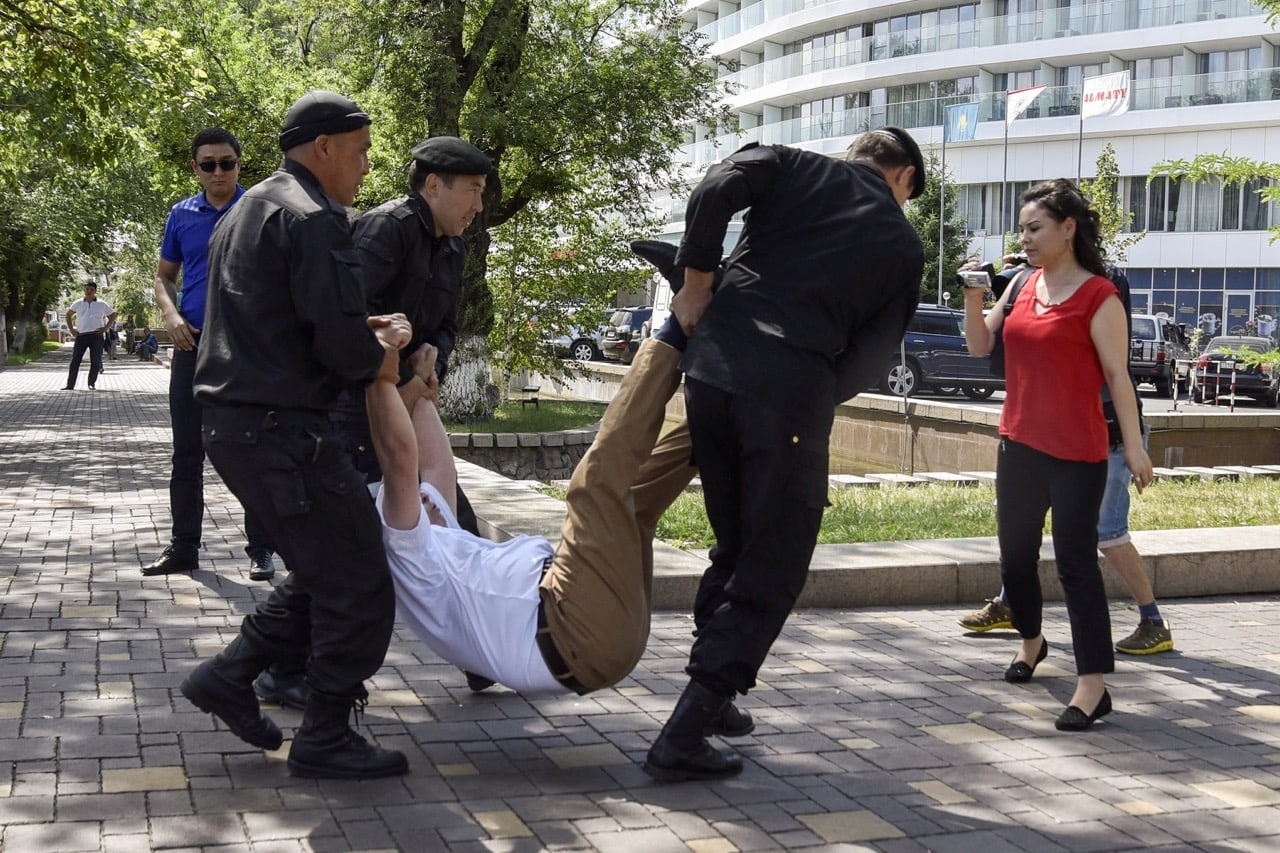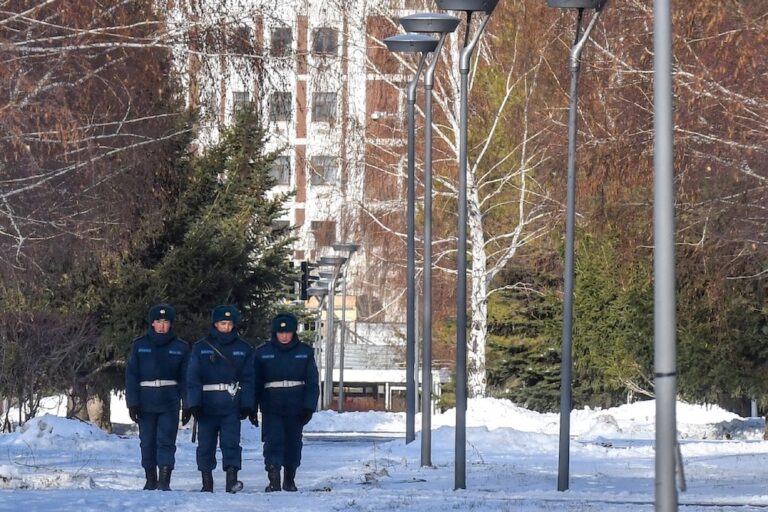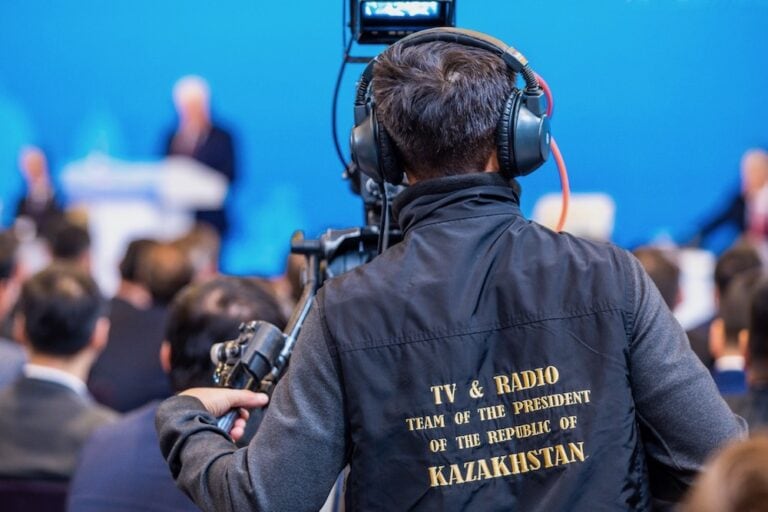On 23 June at least eight journalists were targeted and detained in a round of mass arrests ahead of a planned protest in the city of Almaty. This disturbing video shows people being grabbed off the streets by uniformed, often balaclava-wearing security agents.
Watch the video of the arrests.
Local IFEX member Adil Soz reports that at least eight journalists were targeted to prevent them from covering the planned protest. These included: Nana Iksanova, Maria Melnikova, Lyudmila Kalashnikova and Lukpan Akhmedyarov of the newspaper Uralskaya Nedelya, Sanat Urnaliev and Madi Bekmaganbet from Radio Azattyk (Radio Free Europe Radio Liberty), Andrey Sviridov from the Kazakhstan International Bureau for Human Rights and Rule of Law, and Bagdat Asylbek from the newspaper Diapazon. All were briefly detained for interrogation or documentation checks.
Ablyazov had reportedly asked people to come out onto the streets without banners, placards or any other obviously political material. However, the Kazakh authorities had been monitoring the opposition leader’s messages on social media and prevented any demonstration from going ahead.
The autocratic President Nursultan Nazarbayev (in office since 1990) does not tolerate serious political opposition or criticism from the media. A campaign of official harassment targeting what is left of the independent press in Kazakhstan has been ramped up in recent months. Notably, on 28 May, a court ordered the closure of the news site Ratel.kz. The media outlet had been accused by prosecutors of violating registration rules and of operating illegally by basing its servers outside the country. In a separate case, four Ratel.kz reporters were charged with “disseminating knowingly false information” following a claim filed by the former Finance Minister Zeinulla Kakimzhanov; they face up to five years in jail if found guilty.
On 18 May, IFEX members signed a public statement addressed to the Kazakh authorities, calling on the government to examine recent police and judicial targeting of websites such as Ratel.kz and Forbes.kz and review legislation prohibiting the “dissemination of false information” with the aim of bringing it into line with international standards.



